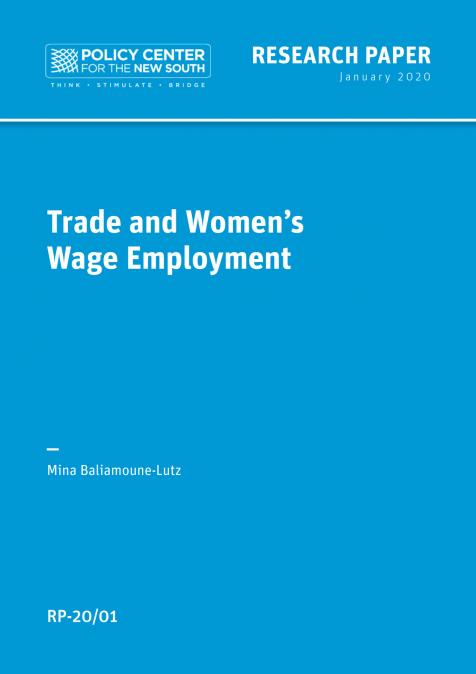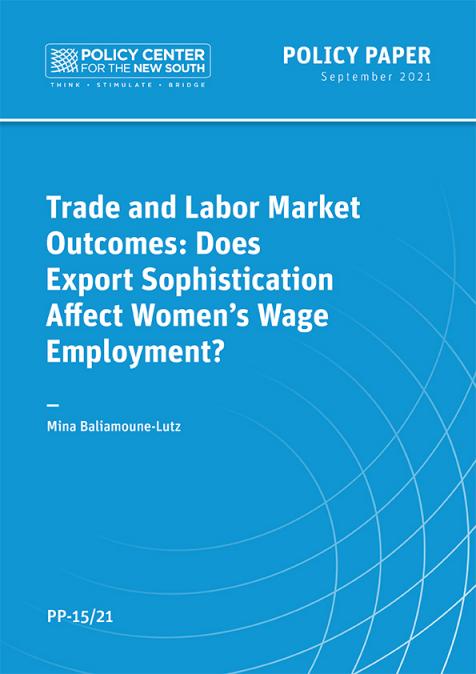Publications /
Policy Paper
The main goal of this paper is to address an important question that arises from the interaction between increased participation in international trade, labor markets, and gender inequality; namely, the impact of trade liberalization on women’s access to wage employment in the non-agricultural sector. We empirically address this question by performing fixedeffects and GMM estimations on panel data from a large group of developing economies, and tracing the impact of trade on women’s access to wage employment. Overall, the empirical results indicate that trade has different effects on women’s participation in wage employment and these effects appear to be nonlinear. Notably, the results seem to be consistent with the ‘MENA gender-equality paradox’. We discuss the policy implications of the findings




